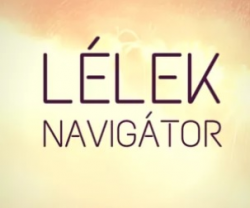A sikerkeresés és kudarckerülés motívumai, viselkedéses megjelenésük és összefüggéseik
Fodor Boglárka, Mihalik Árpád, SZTE BTK Pszichológiai Intézet
Fodor Boglárka, Mihalik Árpád
SZTE BTK Pszichológiai Intézet
A sikerkeresés és kudarckerülés motívumai minden teljesítményhelyzetben megmutatkoznak. Kutatásunk célja a két motívum vizsgálata, viselkedéses megjelenésének és összefüggéseinek megismerése az önértékeléssel, a szorongással, továbbá a versengéssel kapcsolatos attitűdökkel és a sportolással. A mintában szereplő 71 fő papír-ceruza alapú kérdőívcsomagot töltött ki, melynek részét képezte egy sportolási szokásokra vonatkozó kérdéssor, a Rosenberg-féle Önértékelés Skála alternatív fordítása (RSES-H), a Spielberger Állapot- és Vonásszorongás Kérdőív (STAI), a Többszörös Versengési Attitűd Leltár (MCAI), és az Achievement Motives Scale átdolgozott, általunk fordított változata (AMS-R). Emellett a kutatásban felhasználtunk egy online játékot is, mely a vizsgálati személyek teljesítmény iránti igényszintjének megállapítására volt alkalmas. Eredményeink alapján elmondható, hogy a sikerkeresés magasabb önértékeléssel és alacsonyabb szorongással jár együtt. Emellett az önfejlesztő versengés pozitív kapcsolatot mutat a sikerkereséssel, míg a versenykerülés a kudarckerüléssel áll pozitív összefüggésben a kérdőíves eredmények alapján. Azonban a viselkedéses válaszok alapján történő sikerkeresés és kudarckerülés megállapítása esetében, az online játék eredménye ellenkező irányú kapcsolatot mutat.
Kulcsszavak: sikerkeresés, kudarckerülés, versengés, önértékelés, szorongás, sport
English abstract
Motivation for success orientation and failure avoidance, and their influence on behavior
Motivation for success orientation and fear of failure are present in all types of achievement situations. The aim of our study is the examination of these two classes of motivations and their appearance on behaviour, their connections with self-esteem, anxiety, competitive attitudes and sports activities. The 71 people in the sample had to fill out a questionnaire which consisted of questions on their sport habits, the Rosenberg’s Self-Esteem Scale (RSES-H), the Spielberger State-Trait Anxiety Inventory (STAI), the Multiple Competitive Attitudes Inventory (MCAI) and the revised Achievement Motives Scale (AMS-R), which was translated by us. The study also included an online game by which hope of success and fear of failure can be determined based on the level of expectation. According to our results the attitude of success orientation is paired with higher level of self-esteem and lower level of anxiety. Besides, based on the results of the Achievement Motives Scale, self-developmental competitiveness has a positive relationship with success orientation, while the attitude of competition avoidance is correlated positively with fear of failure. However, when the level of success orientation and fear of failure depended on the behavioural responses of the online game, the relationship was found in the opposing direction.
Key words: success orientation, failure avoidance, competitiveness, self-esteem, anxiety, sport






